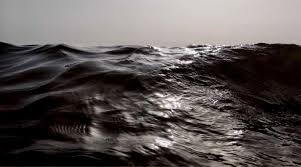Ocean Darkening:

A new study seems to suggest that more than one-fifth of the global ocean has considerably darkened in the last two decades.
- Darkening of the ocean is essentially shrinking of the photic zones or those layers of water where sunlight can pass and induce the process of photosynthesis which is key to all biological processes.
- The photic layers can go down to about 200 meters and they also act as a base for nearly 90 per cent of the world’s marine life.
- This layer is responsible for increasing the productivity of the ocean which also involves regulating climate and even supporting global fisheries or related activities.
- A new study seems to suggest that more than one-fifth of the global ocean has considerably darkened in the last two decades.
- In coastal zones, darkening is usually due to higher runoff of agricultural nutrients, organic matter, and sediments into the ocean with rain which directly promotes algal blooms that block light.
- In the open ocean, the likely causes are changes in plankton dynamics, increase in sea surface temperature and changes in ocean circulation.
- The contraction of photic zones may lead to fundamental shifts in marine ecosystems.
- Those species that use sunlight and moonlight cues to feed, move, hide, and reproduce will be competing for shallower zones.
- This might upset marine food webs that are already working hard against an ecosystem with minimal fishing activity.




